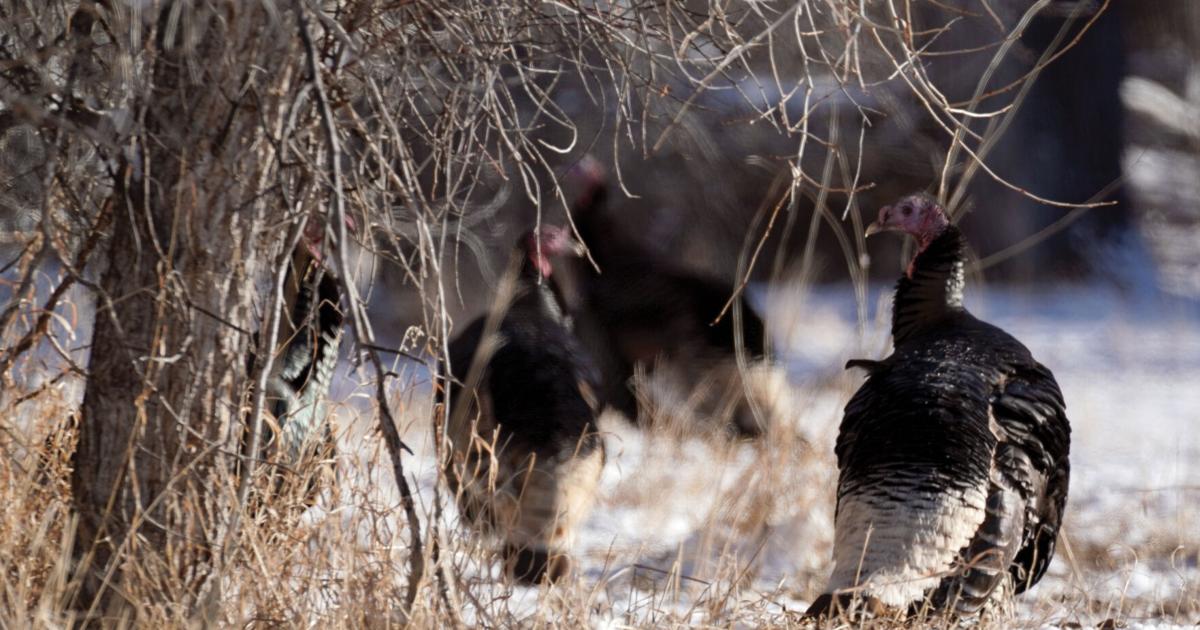
POWELL — The Wyoming Game and Fish Department bird farm in Sheridan has euthanized its brood stock of pheasants out of an “abundance of caution” after dead turkeys near its captive flock tested positive for Highly Pathogenic Avian Influenza (HPAI), a form of avian influenza killing wild birds across the country.
None of the birds raised by the farm was found to be infected, but the department decided it was necessary.
“With the amount of wild birds that are around the farm, we were concerned about [the virus] getting in the bird farm,” said Dan Smith, the department’s Wildlife Division and Cody Regional wildlife supervisor.
“There was no indication that any of our birds were sick and none tested positive,” he said in a Tuesday interview. “But had we got to that [point], it would have been too late. So this was a preemptive action.”
The farm raises approximately 14,000 pheasants to be released in hunting areas, including in the Big Horn Basin. Officials were able to collect eggs and will start fresh after wild birds have migrated through the area, Smith said.
“We’ve collected more than half of what we would normally collect,” he said, adding hunters should expect to see an impact during the 2022 upland game bird season. Yellowtail Wildlife Habitat Management Area receives thousands of the birds each year to give upland game bird hunters more opportunities in the Basin. They typically receive heavy pre-opening day pheasant releases and bi-weekly releases totaling approximately 4,000 pheasants for the season. Stocking concludes the third week in December, according to the department.
The bird farm hopes to receive supplemental eggs from the department’s Downer farm, which raises approximately 17,000 pheasants per year.
Reports of dead wild birds have hit several areas in the state, including in the department’s Cody Region. Game and Fish officials have reported finding infected Canada and snow geese with the virus in Park County.
Two turkey vultures were also reported to be found infected with the virus in Albany County on the University of Wyoming main campus.
After the first discoveries, reports of the virus were reported in high densities in the Big Horn Basin, on the east side of the Bighorn Mountains, in the Greater Yellowstone Ecosystem, in the South Pass, east of Casper and near Cheyenne.
“Anyone who finds clusters of three or more dead wild birds — especially waterfowl and other water-birds — please contact the Game and Fish Wildlife Health Laboratory,” said Jessica Jennings-Gaines, Game and Fish wildlife disease specialist. “We’re also asking for reports of any number of raptors or bird scavenger species — like crows and vultures — exhibiting signs of neurological impairment or being found dead with no apparent cause.”
HPAI can be zoonotic, meaning there are risks to human health.
“Do not handle sick or dead wildlife,” the department warns. “We’ve been messaging directly to springtime turkey hunters to keep their eyes out and remind folks to not handle sick or dead birds to help prevent the spread of the disease,” said Sara DiRienzo, public information officer for the department.
Wild birds can be infected with HPAI and show no signs of illness.
They can carry the disease to new areas when migrating, potentially exposing domestic stock to the virus, according to the U.S. Department of Agriculture’s Animal and Plant Health Inspection Service.
The agency anticipates avian influenza detections will occur in additional states as wild bird surveillance continues into the spring.
The agency’s wild bird surveillance program provides an early warning system for the introduction and distribution of avian influenza viruses of concern in the United States, allowing the agency and the poultry industry to take “timely and rapid action to reduce the risk of spread to our poultry industry and other populations of concern.”
“The number of migratory birds coming through [the area] is going to reduce over the next few weeks,” Smith said.
The Sheridan farm will wait to hatch new stock until after the migration.
The Diamond Wings Upland Game Bird farm is on strict lockdown to protect its flock of 51 captively raised greater sage grouse and tens of thousands of pheasant and chukars.
Officials at the Park County Fair are also monitoring the situation to see if there will be a problem acquiring chickens for the upcoming county fair.
To report clusters of dead birds, call the Game and Fish wildlife health laboratory at 307- 745-5865.
"bird" - Google News
April 30, 2022 at 04:45PM
https://ift.tt/KsJxWZe
Sheridan bird farm depopulated | Regional News | thesheridanpress.com - The Sheridan Press
"bird" - Google News
https://ift.tt/X0T9qeu
https://ift.tt/n2WOu10
Bagikan Berita Ini














0 Response to "Sheridan bird farm depopulated | Regional News | thesheridanpress.com - The Sheridan Press"
Post a Comment